Ensure the integrity of your tissue specimens with labels that withstand the rigors of histological processing and diagnostic staining. Our solutions offer precise identification and tracking, from tissue collection to slide preparation. Designed for durability, our products help maintain the accuracy and reliability of your histology and pathology workflows.
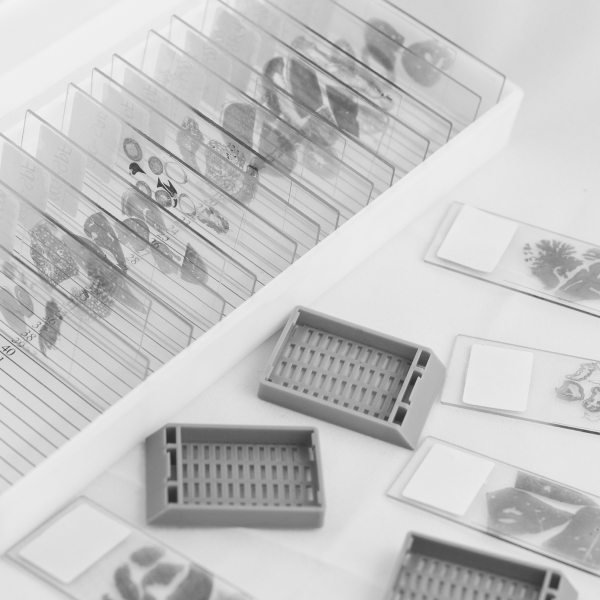
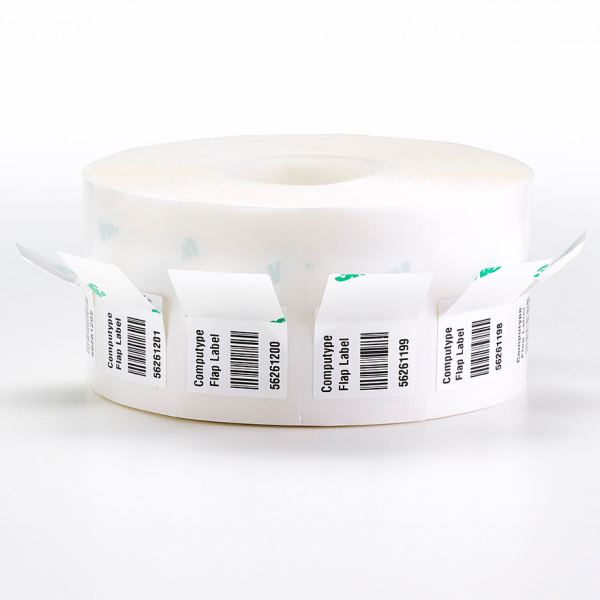
Barcode labeling in histology and pathology requires materials that can endure extreme conditions without compromising data integrity. From chemical exposure to high heat and cold storage, every stage of the workflow puts stress on the label. That’s why these solutions are engineered for durability, precision, and compatibility with lab processes. Whether you’re labeling slides, cassettes, or cryo specimens, consistent performance is essential. Below are four labeling solutions designed to meet the demands of histology and pathology.
Self-laminating flap labels for histology and tissue slides
Durable custom pre-printed labels for specimen identification
Laser-etched tissue cassettes for permanent ID
Cryo-resistant labels for histology and pathology specimens
Histology labels must withstand xylene, ethanol, and staining reagents without smudging or degrading. Chemical-resistant label constructions keep barcodes and text readable through processing.
Labels used in histology often need to endure both paraffin embedding at 60°C and refrigerated specimen storage. Materials and adhesives are chosen to stay intact through heat and cold.
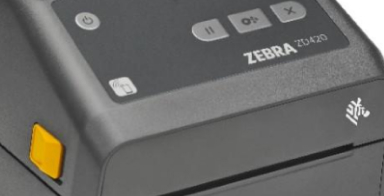
Thermal transfer label kits offer flexibility for labs that need to print on demand. Choose from xylene-resistant face stocks, heat-stable adhesives, and formats compatible with slides, cassettes, and tubes. These labels integrate into existing workflows and print systems with precision and reliability.
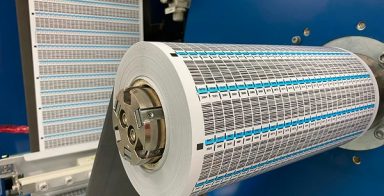
Our pre-printed labels are designed for harsh lab environments and provide unmatched resistance to chemicals, heat, and abrasion. Printed with durable inks or resin ribbons, they stay readable through staining, embedding, and long-term storage. Pre-printing also ensures data accuracy.
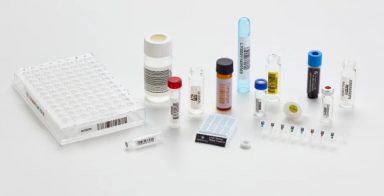
Laser-etched or pre-labeled slides, cassettes, and tubes arrive ready to use, eliminating the need for in-house labeling. Permanent markings resist solvents, heat, and physical wear while maintaining traceability. This option reduces labeling labor and helps streamline high-throughput environments.
Watch our video to see how our specialty FLAP microscope slide labels for histology deliver unparalleled durability. These labels are engineered to preserve the integrity of your tissue specimens and data, even in the most challenging lab conditions. Discover how this advanced solution elevates the precision and reliability of your labeling process.
FLAP (Flexible Lamination After Printing) labels are designed to protect critical information on histology slides during processing.
These labels feature a self-laminating flap that shields printed data from xylene and staining solutions, ensuring that barcodes and other identifiers remain intact and readable.
By preserving the integrity of the label, FLAP labels support accurate and efficient diagnostics in challenging lab environments.
Protect images from xylene and stains
Keep barcodes readable during processing
Block stains with hydrophobic label surface
Ensure reliable tissue sample identification
Xylene is a powerful solvent commonly used in tissue processing, but its harsh chemical nature makes it a major threat to most label materials. In histology workflows, even brief exposure to xylene can cause ink to dissolve or labels to delaminate, risking data loss.
FLAP labels are engineered to withstand prolonged xylene immersion without smearing, lifting, or clouding. This resilience is especially important for labs moving toward full slide traceability and digital scanning. With the added lamination layer, FLAP labels help ensure that tissue samples can be tracked confidently from grossing to long-term archiving.
For labs that prefer to label their own vials, it’s crucial to use the right labels, printers, and applicators to ensure precision and compatibility with chromatography equipment. Proper barcode placement is essential for seamless integration into automated systems and accurate sample tracking. Choose high-quality label materials that can withstand the chemical and environmental conditions of laboratory processes.
High-quality label printing ensures that all essential information is accurately conveyed on every sample. By using durable materials and advanced inks your labels remain legible and intact. Custom printing allows you to include barcodes, alphanumeric sequences, and detailed text.
Streamlining label application with automatic tube and plate labelers enhances efficiency and accuracy in your lab. Automated labelers reduce the risk of human error, ensuring that each label is applied precisely and consistently, regardless of sample volume.
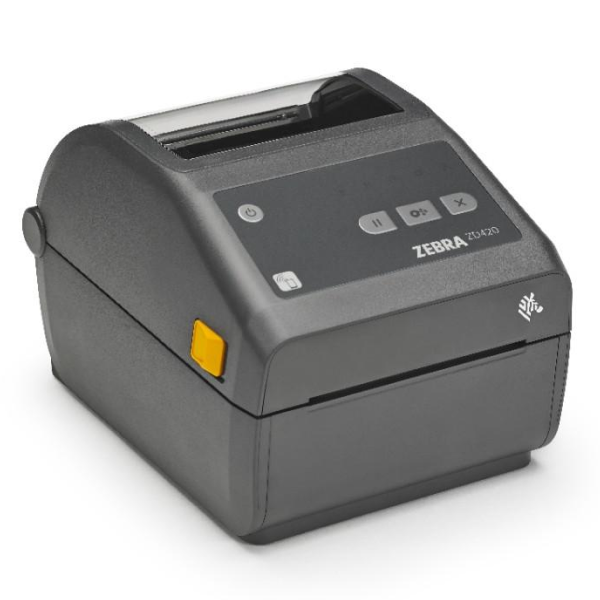
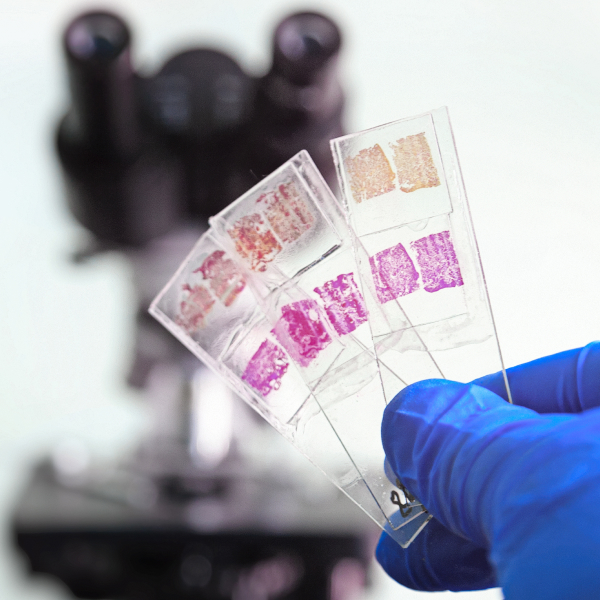
In histology and pathology labs, accuracy and consistency are everything. Technicians and pathologists work under intense conditions, managing hazardous chemicals, extreme temperatures, and fragile biological material while ensuring traceability at every stage. The tools they rely on, from slides to cassettes to organizational systems, must endure these challenges without introducing risk.
Key environmental demands include:
Exposure to xylene, formalin, and staining solutions
Sustained heat during paraffin embedding and slide mounting
Frequent handling and abrasion from lab processes
Long-term storage in ambient, refrigerated, or archived settings
Xylene alone poses a major threat, as it’s used heavily in tissue clearing and can rapidly degrade unprotected materials. Meanwhile, embedding exposes specimens to temperatures up to 65°C (149°F), requiring components that won’t lift, blur, or fail under heat. Day in and day out, pathology professionals need materials and tools they can count on—because the stakes are too high for uncertainty.
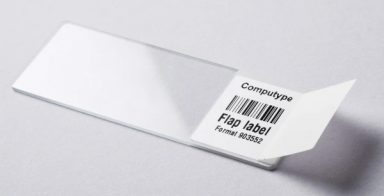
Microscope slides are crucial for mounting tissue samples in histology labs. These slides must resist chemicals like xylene, formalin, and staining solutions. FLAP labels, with a hydrophobic barrier, offer extra protection and can be equipped with RFID for enhanced tracking, ensuring accurate identification throughout the staining process.
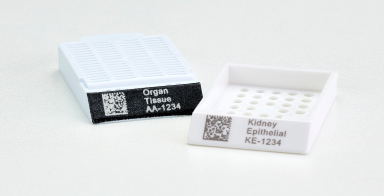
Tissue cassettes securely hold samples during processing and embedding. Made of perforated plastic, they allow reagent flow while protecting tissue. Labels for cassettes must endure chemicals like xylene, formalin, and high heat during paraffin embedding, ensuring proper identification from processing to sectioning.
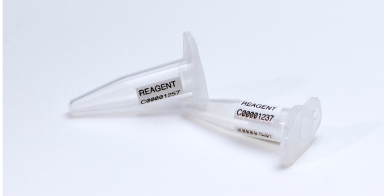
Centrifuge tubes, including microcentrifuge tubes, are used to process and separate fluids in histology. These conical tubes require die-cut labels to fit their shape, often paired with matching cap labels. Designed to withstand high-speed centrifugation and chemical exposure, these labels ensure accurate tracking of samples.
Ready to enhance your histology labeling solutions? Fill out the form below, and our team will assist you in finding the right labels for your needs.
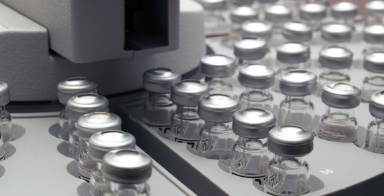
Chromatography solutions enable effective separation and analysis of compounds. Improve accuracy and efficiency in your lab processes.
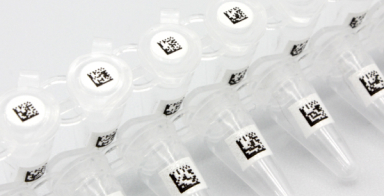
PCR solutions offer precise and reliable amplification for genetic analysis. Enhance your research with high-quality, accurate results.
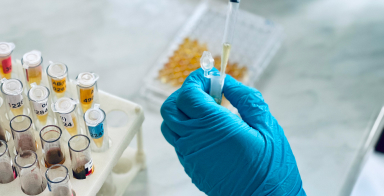
Support innovative research and development. Streamline your studies with advanced solutions for discovering new compounds.


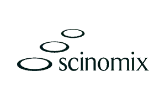









© Computype 2024
© Computype 2024
Take advantage of our volume discounts for bulk orders. Reach out to us for a personalized quote tailored to your needs.
"*" indicates required fields